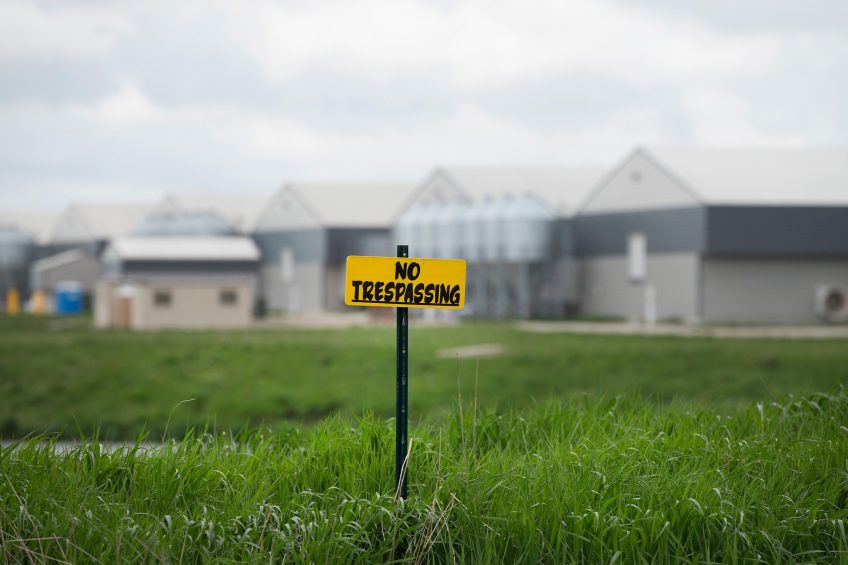USDA clarifies HPAI situation in Tennessee

The isolated case of HPAI in the US in Lincoln County, Tennessee has been controlled by depletion, according to information provided in a March 6th conference call organised by the USDA-Animal, Plant Inspection Service (APHIS)-Veterinary Services, Dr Jack Shere, deputy administrator.
Surveillance of 31 contract farms operated by Tyson Foods within a 10 mile radius of the index farm have not yielded any influenza virus applying PCR assay.
Also read: Avian influenza hits US breeder flock
Notable points regarding the AI outbreak
The conference call with upwards of 380 concerned listeners yielded the following information:
- The index farm comprised 8 houses each holding approximately 7,000 mature broiler breeder hens.
- On Thursday March 2nd, clinical depression was noted in 1 house with a flock mortality of approximately 100 birds amounting to 1.4%.
- On the following day, 500 birds died and representative specimens were submitted to the Kord State Diagnostic Laboratory in Tennessee.
- Initial tests confirmed the presence of H7 avian influenza and tissues were submitted to the National Veterinary Services Laboratory (NVSL).
- The isolate was confirmed as an H7 avian influenza by NVSL and limited gene sequencing demonstrated that the isolate was highly pathogenic consistent with the mortality pattern.
- The initial sequencing assay confirmed that the virus was of North American lineage and was not associated with Eurasian strains responsible for the 2015 Midwest epornitic and the severe outbreaks of H7N6 HPAI in South Korea and Japan. Characterization of the neuraminidase component is pending.
- Virus was not isolated from any of the other clinically unaffected 7 flocks on the farm.
- A decision was made by the Company in consultation with state and Federal veterinary authorities to deplete the farm. In accordance with contingency planning, carbon dioxide foam generators were available and on Saturday March 4th 5 houses were depleted followed by the remaining flocks on Sunday. Dead birds were buried on site.
- Surveillance initiated within the 10 mile zone failed to yield any virus on PCR assay. These tests will be repeated. It is also possible that serologic surveillance will also be carried out to determine whether any flocks show antibodies against avian influenza, which might indicate previous exposure to low-pathogenicity virus.
- Backyard farms in the surveillance zone in both Tennessee and contiguous Alabama are in progress with anticipated results late on March 7th.
- Surveillance of wildlife is in progress although it is noted that 3 isolates of low- pathogenicity H7 have been identified from a large sample of hunter-killed waterfowl in Tennessee. Some low-pathogenicity H7 isolates were obtained this season from hunter-killed waterfowl along the Atlantic flyway.
- An epidemiologic investigation has been initiated to determine the source of infection, presumably from free-ranging birds. It is noted that a pond is located on the index farm.
- Hatching eggs collected from the farm were destroyed in the egg-store at the company hatchery. All eggs and feed on the farm were disposed of by burial along with carcasses.
- Movement of live birds within the surveillance zone are subjected to quarantine restrictions, which require specific permits based on demonstration of freedom from avian influenza.
Check out the interactive Poultry Health Tool – with the latest insights on the 40+ most common poultry diseases.
Poultry export bans
The USA Poultry and Egg Export Council commented on the outbreak noting that South Korea has placed a ban on all uncooked US poultry and egg products including hatching eggs and day-old breeding stock shipped from March 6th onwards. South Korea will continue to allow importation of pasteurised egg products and cooked poultry in accordance with international standards.
Hong Kong issued a ban on Lincoln County effective March 4th. Japan has banned imports from the state of Tennessee. Taiwan announced a ban on products from Tennessee effective March 6th. Singapore will ban importation of poultry products derived from a 10 km zone around the affected farm. The US will suspend exports to Cuba of poultry emanating from Tennessee. Angola has not made any announcement concerning the most recent event. This Nation did not impose any restrictions during the Midwest epornitic of 2015 or the limited-scale Indiana outbreak in turkeys in January 2016.
Lessons learnt from previous outbreak
In reviewing the limited information concerning the outbreak and the prompt response it is evident that lessons learned during 2015 and applied during 2016 have been effective in containing infection affecting 1 house out of the 8 on the site. This minor outbreak can be regarded as another ‘pop-up’ event which will in all probability reoccur since migratory waterfowl and possibly other birds serve as carriers of the virus for a few weeks at a time.
Also interesting: The survivability of avian influenza examined
The probability of infection occurring on commercial farms in the US is limited by improved standards of biosecurity. This is especially the case with a number of large integrators which have followed the suggestions of their on-staff veterinarians and other poultry health professionals regarding Structural and Operational biosecurity.
Implications for Tyson Foods
The announcement by the USDA that the index farm was contracted to Tyson Foods represent a departure from previous policy. Initially, association of the company with HPAI infection resulted in a transitory 3% decline in the share price of Tyson Foods at the market open on Monday March 6th reaching a low of $61.05 at 10H30 but regaining value to a level of $62.25 by 14H30. Tyson Foods (TSN) has ranged from $55.70 to $77.10 over the past 52 weeks.
[Source: Chick-Cite]













